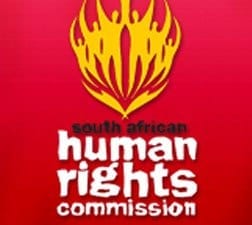The South African Human Rights Commission (SAHRC) is disappointed by the Department of Water Affairs’s (DWA) response to its report on water and sanitation.
The SAHRC recently released its Report on the Right to Access Sufficient Water and Decent Sanitation in South Africa: 2014 which found thatdepartments and the private sector mainly view water as an economic good or commodity. In addition, it found that there is a lack of a human-rights-based approach to the delivery of water and sanitation services and sees the need for government to evaluate the current models of governance and funding to address failures in governance and budgeting. The DWA responded by calling the report outdated, baseless and misleading. According to the department’s media liaison officer Themba Khumalo, the DWA objected to the report because the hearings were held in 2012 and not 2014 and because it only focused on areas with poor access to services withoutthe commission consulting with people who had benefited. SAHRC spokesperson Isaac Mangena said the SAHRC is disappointed by the DWA’s response to the report as the findings were informed by the views of the communities in all the nine provinces. The hearings were attended by community members who presented oral and written submissions on the challenges that they face on a daily basis in accessing water and sanitation. Civil society leaders and government officials, including DWA representatives, were also invited to the hearings.Mangena points out that the SAHRC did not aim to do a representative sample study illustrating the level of access to water and sanitation in the country as a whole, but rather aimed to assess the level of access to water and sanitation in the provinces’ poorest communities. The commission also wanted to hear community members’ experiences in accessing basic services. He advocates that the study provides a unique look at the reality faced by rural communities that is not illustrated by national and provincial statistics.
According to Mangena, the SAHRC embarked on a comprehensive verification process of the study’s findings and recommendations with all relevant government departments. The departments of Water Affairs, Human Settlements and Cooperative Governance and Traditional Affairs participated in this process via meetings and subpoena hearings. “The SAHRC study did not assume that the provision of sanitation is the responsibility of the DWA, but specifically delineates the competency of different government departments and different spheres of government. The report does however note with the concern, the lack of collaboration between different departments and spheres of government, to the detriment of communities,” Mangena said in a statement.He believes it is important that national departments like the DWA take note that despite the improvement in access to water and sanitation at a national level, the poorest people in the country have not benefitted from these improvements and feel helpless and ignored. “Often, their complaints are not even responded to by ward councillors, local government or provincial and national government. The SAHRC understands that the provision of services like water and sanitation is the competency of local government. However, in the many areas where the inadequate provision of basic services has reached crisis proportions, like Mothotlung in the Madibeng municipality, the Minister of Water Affairs can and should intervene to ensure access to water and to realise the dignity of people in those communities.”






